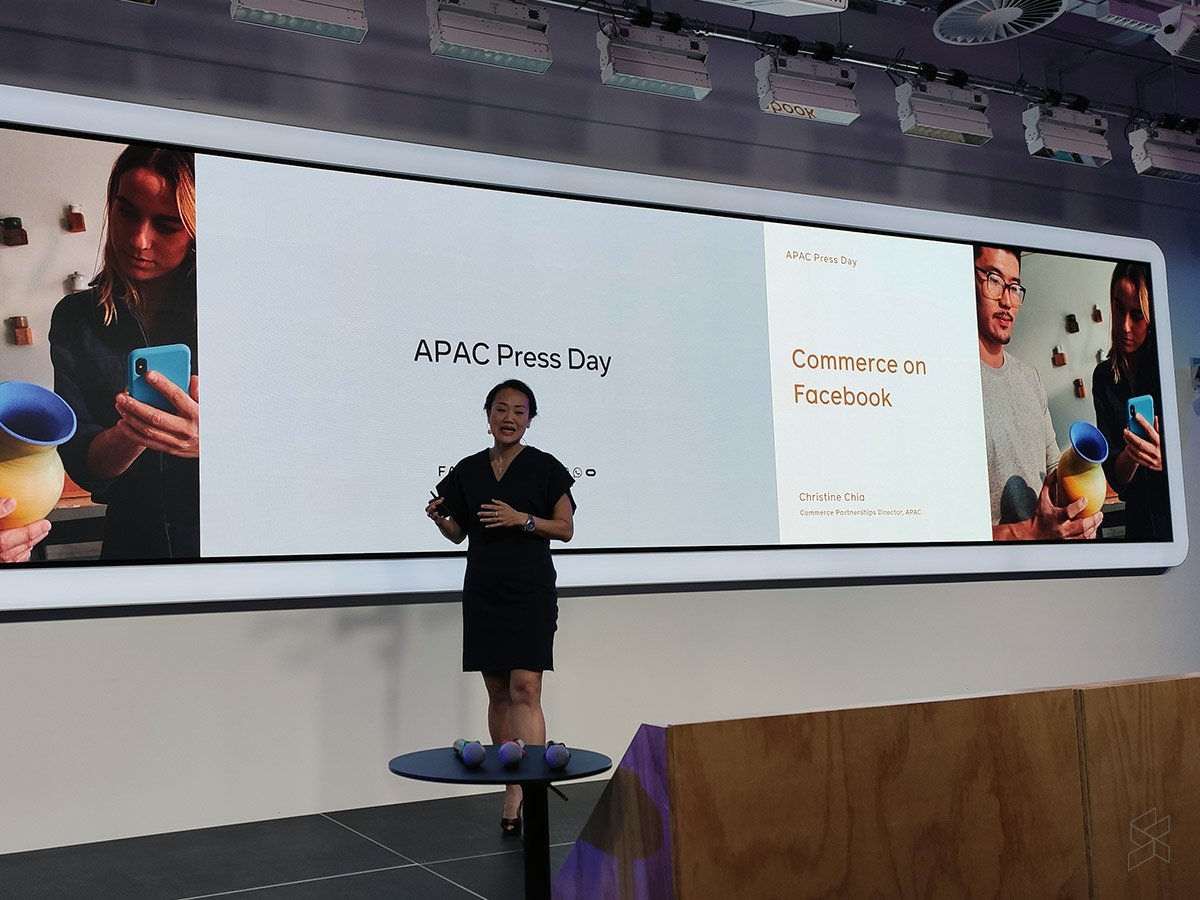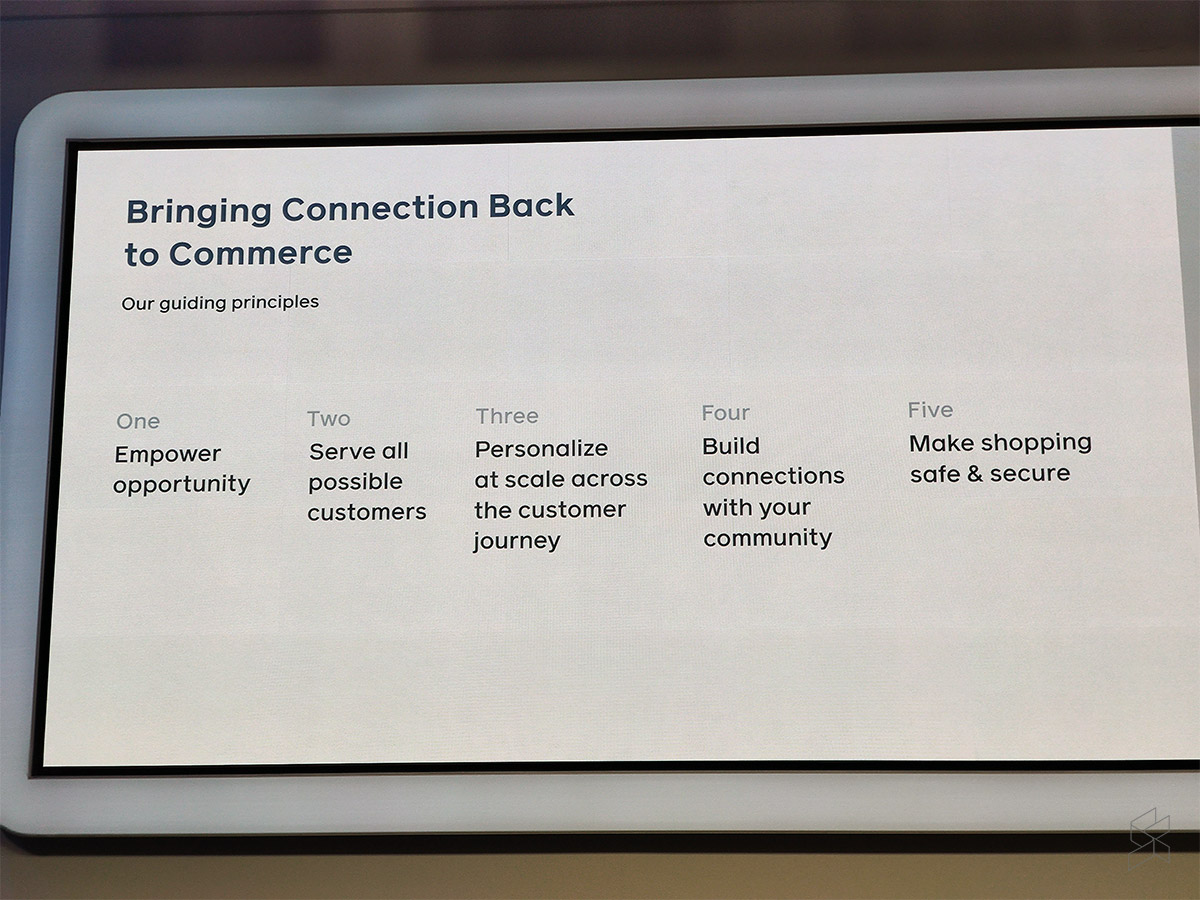
Facebook’s business strategy for the future: Conversational commerce
by Nic Ker“How many of you have ever bought something through messaging chat before?”
Facebook‘s Commerce Partnerships Director for APAC, Christine Chia, explains that commerce has evolved over the years—it’s no longer about the single sale in that moment. Instead, it’s about building connections and relationships with customers.
At the APAC Press Day 2020. Facebook explained some of their plans for the future—including making moves in the commerce space.
In essence, Facebook’s plans to develop commerce for their part is centred around a combination of two things—conversational commerce. The Asia Pacific region, according to Facebook, is a growth driver with over a billion monthly active users.
The number of messages that were sent between businesses and people on Messenger on a monthly basis has doubled to 20 billion messages in 2019 (up from 8 billion in 2018), which points to a shift in the commerce landscape towards conversational commerce.

And this extends across Facebook’s family of apps: Facebook Marketplace, Instagram, and even WhatsApp. All of the apps function on a single unified commerce stack—which means that a there is cross-platform compatibility across the apps, with more functionality to follow.
A universal catalog is the key feature here, and Facebook says that this unified stack also helps to ensure brand safety. This is due to a combination of integrations into a single “commerce funnel”, with transactions and payments being eventually covered with Facebook Pay. This would mean one single integration that cuts across multiple surfaces.”
“When a user buys something off the Facebook platform, they will be thinking that they’re buying off Facebook. So we need to make sure that we’re accountable to both the buyer and the seller to ensure that we are there for them, and we’re helping them to ensure that the experience is a good one and safe one.”– Christine Chia, Director of Commerce Partnerships for APAC, Facebook
Unfortunately, Facebook Pay is still only available in the U.S., and the Facebook team doesn’t have any concrete news on when we might expect to see the feature in Malaysia, or even the region. This, according to Christine, is also due to the “hyper-local” nature of payments in certain regions.

Meanwhile, Facebook is also exploring the potential of Marketplace. At the present, Marketplace is more popular with classified used goods, and Facebook wants to evolve the platform to complement the goods already available on Marketplace with new retail goods. And according to Christine, that will be something that sets them apart from from other competitors in the region, such as Lazada or Shopee.
“We want to encourage connections and conversations. We believe that it’s going to be very important [for small businesses] to build a brand for themselves.”

And that strategy is targeted towards helping micro-businesses grow, scale, and ultimately compete with larger, more established brands. That’s where the social element of Facebook’s approach comes in—customers become advocates for brands to grow.
That’s a key factor for Facebook when it comes to their approach. Coming into the commerce space, it seems that Facebook is aiming to leverage off the continued growth of micro-businesses and SMBs (small and mid-sized business), while banking on the “social” and communicative aspects of their platforms to provide something a little different.
A large part of this arguably hinges on the potential introduction of Facebook Pay. As mentioned earlier, having the entire process integrated within a single “funnel” reduces potential risks and dangers—some of the main obstacles to any e-commerce platform. And with Facebook saying that the Pay feature will work across all of their platforms, this will certainly open up a lot of opportunities.
Unfortunately, until further notice, we don’t have concrete details on that—not yet, anyways.
To find out more about conversational commerce, head over here.